Gilles Villeneuve is the only driver whose GP career mirrored the years of the ground effect era. Through a combination of stunning victories and controversial incidents, he became either, depending on your point of view, a legend or, whisper it, a bit of a hooligan.
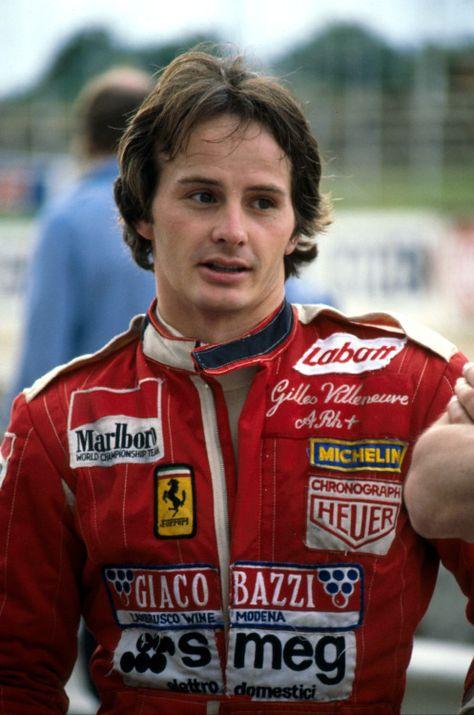
"I will drive flat out all the time … I love racing."
"The sport is more important than anything. More important than any of the people in it. Of course I say what I think. I always have, even if it upsets people like Ecclestone and Balestre. Why should I be afraid of them? The fans aren't here to see politicians and manipulators. They're here to see Alain and Mario and Carlos and me. I am very secure in my feelings about racing. I make a lot of money from it, but one thing I can tell you for sure: if the money disappeared overnight, I would still be in racing, because I love it. The entrepreneurs would be gone." Gilles Villeneuve
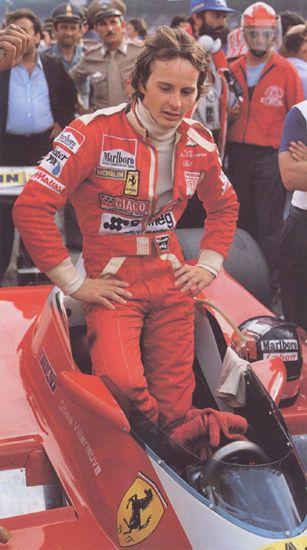
Interview with Gilles Villeneuve post-Imola 1982
Interviewer: Gilles Villeneuve, ninety hours after Imola you’ve got over the anger, but the fever is still there right?
Gilles Villeneuve: “yes, the fever is still there, as I said at the end of the race, he robbed me of a win and I still think that way”.
Interviewer: so you haven’t changed your mind?
Gilles Villeneuve: “no I haven’t...changed my mind. That’s how it should be. If you look back at the lap times for the race you’ll see I’m right”.
Interviewer: Gilles, wasn’t there some sort of agreement, beforehand?
Gilles Villeneuve: “there was an agreement. I’ve been with Ferrari now for three years; the order has always been not to get involved with a battle. For instance, if the car’s in the lead and there’s no one close behind, it’s better to go slower and not run the risk of breaking down. In other words, to be sure of finishing”.
Interviewer: people are saying that Gilles Villeneuve has never had this sort of problem with other drivers but this time, he wanted to be respected. At least, that’s what some people are saying.
Gilles Villeneuve: “er…I don’t understand”.
Interviewer: people are saying, Villeneuve has always fought hard and has always raced for the sake of racing. This time though, he wanted to be respected as the almost certain winner.
Gilles Villeneuve: “er…I still don’t quite understand. When I was behind Jody, in South Africa, I overtook him only when he went into the pits. When I was in Monza, which was the last possibility for me, my last chance of becoming world champion, I stayed behind Jody without even trying to overtake him. When I was er…erm…in Monte Carlo, when I was in Monte Carlo, my gearbox failed but, before that happened, Jody was driving slowly because he had the advantage but I never tried to overtake him. Here, instead it was different. When the slow down sign is out, I slow down, making the other drivers slow down too. And then, Didier overtook me and if you look at the lap times for Imola, every time that I’m in front I lap at 37.5 to 37.8 to save petrol and the engine also because I have a 45 second lead over Alboreto. When Pironi is leading, we lap at 35.5”.
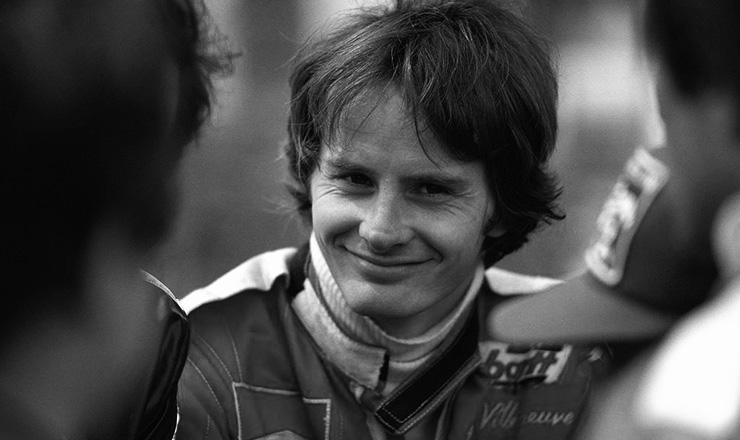
Gilles Villeneuve at the 1978 Monaco Grand Prix.
30 best Gilles Villeneuve quotes. By Bookey.
Gilles Villeneuve was a Canadian racing driver who was renowned for his fearless and daring approach to Formula One racing. Born on January 18, 1950, in Saint-Jean-sur-Richelieu, Quebec, Villeneuve quickly made a name for himself as one of the most exciting and talented drivers of his era. Villeneuve's racing career began in the late 1960s when he started competing in snowmobile races. He soon transitioned to kart racing, where he displayed his natural talent and ability to push the limits of his machinery. His success in karting led to opportunities in Formula Atlantic racing, which served as a stepping stone to his eventual entry into Formula One. In 1977, Villeneuve made his Formula One debut with the McLaren team, where he impressed with his speed and determination. His breakout year, however, came in 1978, when he joined the Ferrari team, a partnership that would define his career. Villeneuve's raw talent and aggressive driving style perfectly complemented Ferrari's ethos, and he quickly became a fan favorite. One of Villeneuve's defining characteristics was his uncompromising commitment to speed, even at the risk of danger. He was never one to play it safe, often pushing his car to the very limits and beyond. This approach endeared him to fans, who admired his bravery and willingness to take risks. Villeneuve's most memorable season came in 1979, where he battled against his teammate Jody Scheckter for the World Championship. Villeneuve's relentless pursuit of victory resulted in some iconic battles on the track, including an unforgettable duel with René Arnoux at the 1979 French Grand Prix. Although he fell short that season, finishing second in the championship, Villeneuve had firmly established himself as one of the most exciting drivers of his time. Tragically, Villeneuve's career was cut short when he died during qualifying for the 1982 Belgian Grand Prix at Zolder. While attempting to set a fast lap time, his car collided with the slower-moving car of Jochen Mass, causing his Ferrari to be launched into the air and crash into a wall. Villeneuve succumbed to his injuries and passed away at the age of 32, leaving behind a lasting legacy in the world of motorsport. Despite his brief career, Gilles Villeneuve's impact on Formula One is still felt to this day. His fearless approach to racing, combined with his undeniable talent, made him a beloved figure among fans and fellow drivers alike. Villeneuve's legacy serves as a reminder of the passion and dedication that drives individuals to chase their dreams, regardless of the risks involved.
Gilles Villeneuve initially had no interest in racing and only started driving to make some extra money. He began by participating in snowmobile races before transitioning to car racing.
Villeneuve's first Formula One race was in 1977 at the British Grand Prix. Despite having no prior experience in Formula One, he impressed everyone by qualifying ninth and finishing 11th in the race.
Villeneuve had an incredibly aggressive and fearless driving style, often pushing his car to the absolute limit and taking risky overtakes. This led to some iconic moments in his career but also caused numerous crashes and controversies.
In 1982, during the San Marino Grand Prix, Villeneuve had a high-speed crash during qualifying that tragically resulted in his death. Despite the crash being so severe that his car was completely destroyed, Villeneuve's cause of death was determined to be a fractured neck.
Gilles Villeneuve was highly revered by both fans and fellow drivers for his extraordinary talent and bravery on the track. His aggressive driving style and determination made him one of the most popular Formula One drivers of his time and his legacy continues to inspire racers today.
Gilles Villeneuve's famous quote, "Racing is life. Anything before or after is just waiting," perfectly exemplifies his deep passion for the sport. As a Formula One driver, Villeneuve understood that racing was more than just a profession; it was a way of life. The quote encapsulates the exhilaration, intensity and dedication that comes with being on the track, where every moment counts. For Villeneuve, there was no greater sense of purpose and fulfillment than pushing the limits of speed and skill. Anything outside the world of racing was merely a waiting period, an intermission before the next adrenaline-fueled experience, where he thrived and truly felt alive.
Gilles Villeneuve, one of the most iconic and talented Formula One drivers of all time, once said, "If somebody gives you a perfect setup, then you know you're in a perfect car." This quote encapsulates Villeneuve's unique perspective on the relationship between a driver and their vehicle. For him, an ideal setup means finding the perfect balance between various technical aspects, such as suspension, aerodynamics and tire pressure, tailored to his driving style. A car with a perfect setup reflects not just impeccable engineering, but also the seamless harmony between driver and machine. In Villeneuve's world, obtaining such a setup signifies a rare and special occasion, one that unleashes the full potential of both car and driver, paving the way for exceptional performance, exhilarating speed and ultimately, the pursuit of victory.
In this quote (“I was always interested in racing, but I was never fascinated by it. Racing isn't the real problem for me. Life is the real problem”), Gilles Villeneuve offers a perspective on his relationship with racing. While acknowledging his interest in racing, he admits to not being entirely fascinated by it. This statement sheds light on his inner conflicts and reveals that racing itself was not the true problem he faced. Instead, he points out that life itself was the real challenge for him. It implies that the complexities, struggles and uncertainties of life outside the racing world posed greater difficulties for Villeneuve. This quote shows the depth of the late driver's introspection, highlighting his journey to find meaning beyond the confines of the racetrack.
Gilles Villeneuve's quote, "If you think you're safe at 200 miles per hour, you're not," conveys the significance of speed and risk in high-speed racing. Villeneuve understood the immense danger associated with pushing the limits of velocity on the racetrack. Despite the adrenaline rush and thrill that comes with extreme speeds, he highlighted the fallacy of feeling secure at such intense velocities. This quote serves as a poignant reminder that in the realm of racing, even the slightest miscalculation or unexpected event can lead to catastrophic consequences. It underscores the need for constant vigilance, immense skill and unwavering focus in order to navigate the treacherous high-speed realm of motorsports.
The quote by Gilles Villeneuve, "I believe in God, I believe in myself and I believe in my team," reflects the unwavering faith and determination of a remarkable individual. Villeneuve's strong belief in God signifies his recognition of a higher power and the belief that there is a greater purpose guiding his actions. Moreover, he demonstrates admirable self-confidence, acknowledging his own abilities and strengths. This self-belief fuels his perseverance and enables him to face challenges head-on. Additionally, Villeneuve's belief in his team highlights the value he places on collaboration and the trust he has in the collective effort. This quote encapsulates Villeneuve's profound conviction in both spiritual and personal aspects, emphasizing the synergy among faith, individual potential and teamwork.
Gilles Villeneuve's profound quote, "A lot of the time, driving is impossible. When that happens, you have to trust your instincts and make a decision," encapsulates the essence of his daring and audacious nature both on and off the race tracks. Villeneuve knew that navigating challenging situations often required more than technical skills and knowledge. He recognized the unpredictable nature of driving and the moments where there might not be any seemingly correct option. In such instances, he believed in relying on one's instincts and having the courage to make choices, even if they might appear uncertain. His words not only apply to racing but also reveal a deeper life lesson about the importance of trusting oneself and embracing the unknown, ultimately leading to personal growth and meaningful experiences.
Gilles Villeneuve once famously said, "To drive fast, you have to risk your life. No question about it. Risk tolerance is the key." This quote encapsulates the essence of high-speed racing, where the pursuit of victory demands relentless determination and an intrepid mindset. Villeneuve acknowledges the inherent dangers that come with pushing the limits, recognizing that driving at extreme speeds necessitates a willingness to face the precarious nature of the endeavor. The ability to manage and navigate these risks is what separates exceptional drivers from the rest. In those profound words, Villeneuve underscores the vital importance of risk tolerance, reminding us that the relentless pursuit of excellence often entails great peril.
Gilles Villeneuve's insightful quote, "Every race is different. You have to adapt to the situation, no matter how tough it might be," encapsulates the essence of his character. As a true racing connoisseur, Villeneuve recognized that each race presents its own unique challenges and variables. He understood that merely relying on past experiences or a fixed strategy would not suffice in the dynamic world of motorsports. Instead, Villeneuve believed in the imperative ability to adapt swiftly to the constantly evolving circumstances on the track. Whether facing adverse weather conditions, mechanical setbacks, or fierce competition, he implored the necessity of flexibility and resilience. By embracing this mindset, Villeneuve established himself as a driver with unparalleled determination and unmatched skills, leaving an enduring legacy in the annals of Formula One history.
Gilles Villeneuve's quote, "People think I'm crazy, but I'm not. I'm just passionate and dedicated to what I love," encapsulates the essence of a true enthusiast. Villeneuve faced skepticism and criticism for his daring and often audacious style on the racetrack. However, he understood that his relentless drive, fueled by an unwavering passion for racing, was often misunderstood by others as sheer recklessness. In truth, his actions were guided by an unparalleled dedication to his craft, a burning desire to push the limits and an intense love for the sport that made him who he was. Villeneuve's unwavering commitment to his passion serves as a reminder that true dedication and wholehearted pursuit of one's dreams can sometimes be misconstrued as madness, but in reality, it is an embodiment of a fervent spirit driven by an indomitable love.
Gilles Villeneuve's quote, "I don't drive to live, I live to drive," encapsulates his profound passion for the sport of racing. It reflects his unwavering dedication, as well as his unrelenting thirst for the thrill and exhilaration that only driving can provide. For Villeneuve, driving was not just a means to an end, but rather a way of life, an expression of his very existence. This quote speaks to his unyielding commitment to his craft, his determination to push the limits and embrace every moment on the track. It embodies the essence of his unique perspective, where driving was not just an activity, but a profound purpose that gave his life meaning and purpose.
Gilles Villeneuve's quote, "I always want to win, but sometimes you have to settle for second best. It's part of the game," encapsulates the mentality and understanding of a true sportsman. Villeneuve acknowledges the unwavering desire for victory that drives athletes. However, he also recognizes the inevitability of not always reaching the pinnacle. This quote emphasizes the importance of accepting defeat gracefully and appreciating the competitive nature of sports. It serves as a reminder that the journey towards success isn't always linear but is marked by moments of triumph and setback, shaping one's character and fostering resilience. Villeneuve's words inspire athletes to maintain their relentless pursuit of greatness while understanding that losing at times is simply part of the game.
Gilles Villeneuve aptly captures the essence of the unpredictable nature of the racetrack in his quote, "You can't control what happens on the racetrack. All you can do is give it your best and hope for the best." In the high-speed world of racing, countless variables come into play, making it impossible to foresee how events will unfold. Villeneuve's words emphasize the significance of taking charge of the things within our control – our efforts and dedication – while acknowledging the element of uncertainty. It underscores the essence of resilience, encouraging us to pour our hearts into what we do and embrace the unknown with optimism, knowing that we have given our utmost and can only hope for favorable outcomes.
Gilles Villeneuve's quote, "It's not about the destination, it's about the journey. The joy is in the process of racing," encapsulates the essence of his passion for racing and his deep understanding of what truly matters. For Villeneuve, the destination, the victory, is not the sole purpose of racing. Instead, he emphasizes the significance of the journey, the exhilarating and challenging ride towards the finish line. It is during this process, amidst the adrenaline rush, the fierce competition and the endless pursuit of pushing limits, that the true joy of racing lies. Villeneuve's quote serves as a reminder to embrace and revel in the ride, finding fulfillment not only in the end result but in every moment and experience that racing offers.
Gilles Villeneuve's quote “When you're behind the wheel, there's no room for fear. Fear only slows you down” emphasizes the immense importance of courage and determination while sitting behind the wheel. According to the legendary Formula One racer, fear has no place in the driver's seat. Fear, he suggests, acts as a hindrance, significantly decelerating one's progress and potential for success. Villeneuve's words imply that true excellence can only be achieved when drivers possess unyielding determination and a steadfast belief in their abilities. By driving fearlessly, they not only overcome their own limitations but also tap into an untapped reservoir of energy that propels them forward, enabling them to push boundaries and ultimately succeed on the track. Thus, Villeneuve champions the eradication of fear in order to drive with unwavering speed and precision.
Gilles Villeneuve's quote, "I never race against someone else. I race against myself and the track," reflects a profound mindset and approach to competition. Villeneuve believed that the true test of his abilities as a racer lay not in comparing himself to others, but in constantly challenging his own limits and conquering the formidable circuits he faced. By shifting his focus inward, he sought to achieve personal growth, hone his skills and push the boundaries of what he thought was possible. This quote illuminates Villeneuve's unwavering determination and passion for the sport, as well as his relentless pursuit of self-improvement in the face of every race and lap.
In this thought-provoking quote “Success is not measured by victories, but by how much you've grown as a person”, Gilles Villeneuve challenges the traditional notion of success and redirects our focus towards personal growth. He reminds us that true success cannot be solely measured by the number of victories or accomplishments we collect over time. Instead, he believes that the true measure of success lies in the extent to which we have evolved as individuals. By emphasizing growth, Villeneuve suggests that success is a continuous journey of self-improvement, learning from failures and developing a deeper understanding of oneself. Ultimately, this perspective invites us to shift our focus from external validation to an internal examination of our personal development.
Gilles Villeneuve's quote, "You have to be willing to take risks, even if it means crashing sometimes," encapsulates the fearless and determined mindset that often characterizes exceptional individuals. Villeneuve recognized the importance of pushing oneself beyond the limits to achieve greatness. He understood that success often comes at the cost of failures and setbacks, but the willingness to embrace these risks separates the extraordinary from the ordinary. This quote serves as a reminder to not shy away from challenges and to embrace the potential for failure, as it is through these moments that true growth, resilience and ultimate triumph can be found.
Gilles Villeneuve once famously stated, "There's no such thing as luck in racing. It's all about skill, determination and hard work." This quote encapsulates the essence of what it takes to succeed in the fiercely competitive world of auto racing. Villeneuve emphasizes that relying on chance or luck alone cannot lead to victory on the track. Instead, it is the combination of skill, determination and relentless hard work that propels racers towards success. Skill refers to the technical expertise required to maneuver through challenging circuits, timing overtakes and adapting to constantly changing conditions. Determination is the unwavering belief in oneself, the refusal to give up despite setbacks and the drive to constantly improve. Paired with these elements, hard work entails rigorous training, long hours spent perfecting driving techniques and maintaining physical and mental fitness. Villeneuve's quote serves as a reminder that success in racing, as in any field, is earned through relentless dedication, resilience and a commitment to continual self-improvement.
Gilles Villeneuve's quote, "The true test of a driver is how they handle adversity. It's easy to be fast when everything goes well," encapsulates the essence of what separates a good driver from a great one. In the world of racing, success is not solely determined by sheer speed and skill, but by the ability to overcome challenges and setbacks with composure and determination. When things are going smoothly, any driver can showcase their talent and exploit favorable conditions. However, it is when faced with adversity, be it mechanical failures, adverse weather conditions, or intense competition, that a driver's true character is revealed. How they adapt, strategize and maintain their focus under pressure distinguishes the exceptional drivers who can thrive even in the most adverse circumstances. It is through these trials that their mettle is tested, and their greatness truly shines.
Gilles Villeneuve once rightly said, "The best racing moments are the ones that make you feel alive, even if they scare you." In these few words, he encapsulates the essence and thrill of racing. True racers are no strangers to fear; they embrace it and transform it into an adrenaline-fueled force that propels them to their limits. It is in those heart-racing moments where their senses are heightened and every fiber of their being is focused on the road ahead, that they truly feel alive. Whether it is the rush of reaching breakneck speeds or defying death through daring maneuvers, it is these intense experiences that separate the good from the great, the ordinary from the extraordinary. It is during these instants that racers forge their indelible mark on the sport, taking it beyond a mere competition and into the realm of awe-inspiring human achievements.
Gilles Villeneuve's quote, "It's not about being the fastest, it's about being the smarter and more strategic driver," encapsulates the essence of successful racing. While speed undoubtedly plays a crucial role in motorsports, Villeneuve highlights the importance of intelligence and strategic thinking in achieving true dominance on the track. Being the fastest may bring temporary victories, but a smarter and more strategic driver understands that winning ultimately lies in making strategic decisions, accurately assessing situations and adapting to changing circumstances. Such drivers have the ability to formulate plans, manage risks and exploit opportunities, maximizing their chances of long-term success. Villeneuve's words remind us that true greatness in racing extends far beyond raw speed and instead relies on a combination of skill, knowledge, and tactical acumen.
Gilles Villeneuve's quote, "You have to trust your instincts, even when they go against logic," captures the essence of his approach to racing and life. Known for his fearless and daring driving style, Villeneuve believed that true success comes from following one's gut, even in the face of seemingly illogical decisions. He understood that instinct often operates beyond the confines of rationality, tapping into a deeper understanding of oneself and the situation at hand. Villeneuve's philosophy reminds us that exceptional achievements are often born out of stepping outside our comfort zones and embracing the unknown, trusting that our instincts will guide us toward the right path, even when it defies conventional wisdom.
Gilles Villeneuve's quote “Racing is a game of inches, where split-second decisions can make or break your race” perfectly encapsulates the fierce and adrenaline-fueled world of racing. In this high-stakes game, every inch counts and the ability to make split-second decisions can either propel you to victory or shatter your dreams of winning. It emphasizes the intense pressure that drivers face as they navigate through hairpin turns and battle with rival racers, pushing themselves and their machines to the limit. In this unforgiving environment, there is no room for hesitation or doubt. The quote highlights the importance of precision, instinct, and strategic thinking, reminding us that the thin line between triumph and defeat can be determined by mere moments.
In this quote “You have to find the perfect balance between pushing hard and preserving your car” Gilles Villeneuve highlights the delicate balance that must be maintained in motorsport between driving aggressively and ensuring the integrity of the car. Villeneuve emphasizes the importance of pushing the limits to gain a competitive edge, but cautions against compromising the performance of the vehicle. This quote captures the essence of tactical driving, where a driver must harness their skill, intuition and judgment to extract maximum speed while protecting the mechanical components. It reflects the fine line that separates a successful racer from one who pushes too hard and risks damaging their car, a crucial distinction that plays a pivotal role in achieving triumph in motorsport.
Gilles Villeneuve once wisely said, "It's not about winning every race, it's about giving your best effort in every race." This quote encapsulates the essence of true sportsmanship and the relentless pursuit of excellence. Villeneuve's words remind us that victory is not solely determined by the number of trophies one accumulates, but rather by the unwavering dedication and commitment to leave no stone unturned in the pursuit of greatness. He emphasizes that success is not solely defined by the ultimate outcome, but rather by the effort, determination and passion one exudes in every race. Villeneuve's quote serves as a powerful reminder that giving your best effort is an achievement in itself, fostering personal growth and inspiring others along the way.
Gilles Villeneuve once wisely stated, "In racing, there are no shortcuts to success. You have to earn it through hard work and dedication." This profound quote encapsulates the essence of what it truly takes to achieve greatness in the world of racing. It serves as a reminder that success cannot be bought, borrowed, or stumbled upon; rather, it is the result of sheer determination and unwavering commitment. Villeneuve acknowledges that there are no quick fixes or bypasses to triumph. Only those who embrace the grueling journey, invest countless hours of practice and persevere through setbacks can truly stake their claim on the podium. Whether it is honing driving skills, meticulous preparation, or relentless pursuit of improvement, the path to victory demands an unyielding spirit and superior work ethic. Indeed, this quote by Gilles Villeneuve resonates across all walks of life, reminding us that success in any endeavor can only be attained through unwavering dedication and relentless effort.
Gilles Villeneuve's quote, "You learn more from your failures than your successes. Failure is a necessary part of growth," encapsulates the profound wisdom gained through personal setbacks. Often, success may elicit a feeling of accomplishment, but it is in moments of failure that our truest lessons lie. Failure strips away our notions of invincibility and forces us to reevaluate our approaches, cultivating resilience and perseverance. Embracing failure as an indispensable and natural component of growth equips us with insights and experiences that shape our character and propel us towards greater achievements. It is through failure that we evolve, adapt, and unlock our full potential.
In this thought-provoking quote “I don't race against other drivers; I race against myself and the clock”, Gilles Villeneuve sheds light on his relentless pursuit of excellence. He firmly believes that the true competition lies within oneself and the measure of time. For Villeneuve, racing is not merely about outperforming other drivers, but pushing his personal limits and striving for the highest level of achievement. He understands that the clock becomes his ultimate adversary, constantly urging him to improve and surpass his own records. With this mindset, Villeneuve demonstrates his unwavering determination and dedication to his craft, transcending the conventional notion of racing and embracing a more profound sense of self-improvement and growth in his career.
Gilles Villeneuve once stated, "The key to success is to never give up, no matter how many times you fail." In these few words, he encapsulates the essence of a resilient mindset required for achieving great heights. Villeneuve's philosophy emphasizes the importance of perseverance and determination when faced with setbacks. He understands that failure is inevitable on the path to success and believes that the true measure of one's character lies in their ability to rise after every fall. By embodying this spirit of relentless perseverance, Villeneuve reminds us that success is not only reserved for the talented and fortunate but is attainable for anyone willing to keep pushing forward despite adversity.
Gilles Villeneuve aptly captured the essence of racing in his profound statement: "Racing is an art. It's about finding the perfect balance between aggression and control." His words encapsulate the complex and dynamic nature of this exhilarating sport. Racing is not just about sheer speed and power; it is a delicate dance between pushing the limits and staying in control. The great drivers possess a rare ability to channel their aggressive instincts while maintaining a fine-tuned sense of control. They understand that it is not enough to be fast; they must harness their aggression with precision and finesse. It is through this elegant balance that these skilled artists maneuver their machines, delighting both their own passion and the spectators who witness their masterful performances.
'Fantastic! Unbelieveable!" Villeneuve in the rain.
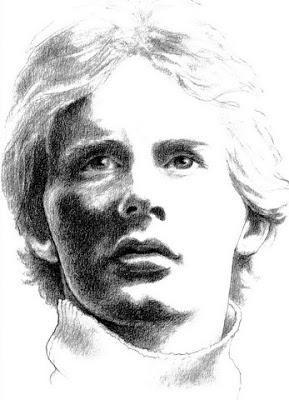
"Although I don't particularly agree with his daredevil style, Gilles Villeneuve has done more for Grand Prix racing this season than all the other drivers combined." Frank Williams
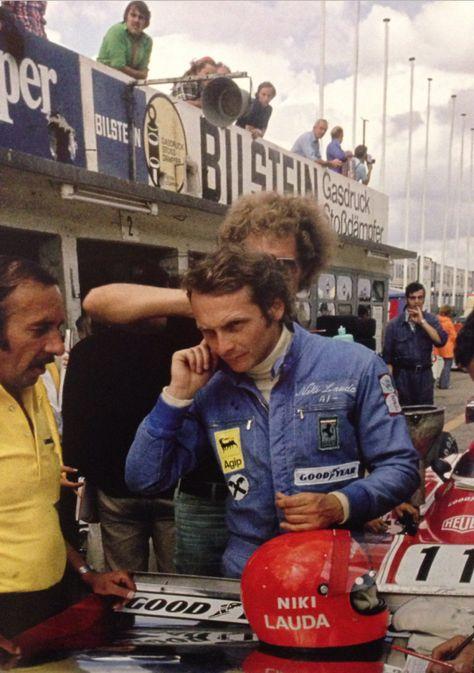
"Gilles Villeneuve was someone I took a great liking to. I liked everything about him. He was the craziest devil I ever came across in Formula 1." Niki Lauda
Gilles contributed even more to the sport and to his own growing legend during the 1979 United States Grand Prix weekend at Watkins Glen. The patented Villeneuve display began on Friday when the track was soaked and few cars even ventured out of the pits. In fact, most drivers thought the flooded tarmac was simply undriveable. Gilles did not share their opinion and Denis Jenkinson was there. "When we saw him going out in the rain, we said, This we've got to see!' Some members of the press, who think they know it all, don't bother to go out when it rains. But I was out on a corner in the rain watching him and all the hardball members of the press were with me. We had to see this. It was something special. Oh, he was fantastic! He was unbelievable!"
Another hardballer on hand was Nigel Roebuck. "Gilles was the one bloke who made you go and look for a good corner in a practice session because you knew that where everybody else would go through as if on rails Gilles would be worth watching. That day in the rain at Watkins Glen was almost beyond belief! It truly was. You would think he had 300 horsepower more than anybody else. It just didn't seem possible. The speed he was travelling didn't bear any relation to anybody else.” He was 11 seconds faster! Jody was next fastest and couldn't believe it, saying that he scared himself rigid!
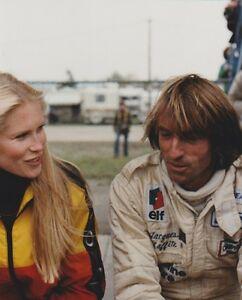
Jacques Laffite Elf Formula 1 driver at Watkins Glen.
I remember Laffite in the pits just Ü giggling when Gilles went past and saying, 'why do we bother? He's different from the rest of us. On a separate level.'"”
Jeff Hutchinson, another British journalist, was also a greatly impressed witness. "The spectacle of him pushing that Ferrari to the limit, with great roostertails of water cascading off its rear wheels, just for the sheer fun and thrill of it, made the wet feet and miserable wait worthwhile. He lapped at an average speed of just over 100 mph!"
"That was fun!" said Gilles, grinning widely as was his custom after such feats. But he was of the opinion that he might have been quicker. "I was flat in fifth on the straight, about 160 mhp. It should have been faster but the engine had a misfire and was down about 600 revs. But for that I could have gone quite a bit faster, but then maybe I would have crashed."
However, his Ferrari was less manageable on dry Michelins and on Saturday Gilles best efforts produced only third on the grid behind Alan Jones and Nelson Piquet. With a grin he said, "I will just have to make one of my usual good starts." And he did that, with the help of more rain that fell half an hour before the start, forcing most people to start on wet tires.
Gilles splashed past Piquet in a flash and alongside Jones under braking for the first corner. "I was trying really hard to get up beside Jones and then I thought I was going to spin as we went into the corner." He put two wheels off the circuit but managed to straighten it all out and lead Jones for the next 31 laps. Villeneuve was in the best possible position because everyone else had heavy spray to contend with, their only navigational aids being the tiny red tail lights on preceding cars.
Before the race was half over the number of Grand Prix cars put out of action by the wet conditions exceeded the total destroyed overnight in The Bog. And the flames from those hijacked and torched vehicles, nine of them were snuffed out in the dampness of race day but the distasteful odour from The Glen's ghetto of madness lingered in the air. While the visiting press were again dismayed by this strange aspect of life in the New World, one native from north of the U.S. border was doing his best to distract them.
Gilles continued to sail around in the wet at a high rate of knots with Jones rather far astern. While Gilles held his own at the front, Jody did better than that following an early spin that relegated him to the back of the field. He passed everyone in sight bar the two leaders and was up with them, in third behind Jones, on the 13th lap. The track was drying now and Jody stopped for slick tires as did many others. By lap 30 Gilles and Jones had lapped the entire field but the changing conditions favoured the Goodyear-tired Williams and two laps later it went by the Ferrari.
Gilles pitted for dry tires, losing half a lap to Jones in the process. But that was erased once and for all when Jones made his stop. He was delayed when a wheel nut gave trouble to the Williams crew. Then, in their anxiety to get Jones out of the pits ahead of Gilles, the team sent him away before the nut was properly tightened. He only made it 500 meters before the offending wheel dropped off. There were no three-wheel heroics from Jones as the Williams slid off the circuit to a permanent halt. Nor were there from Jody Scheckter, whose Ferrari shed a tire exactly as Gilles's had done at Zandvoort. Jody parked it and walked back to the pits the first time he had done so all season.
Thus Gilles won his third race of 1979, the fourth of his Formula 1 career and he finished just four points short of Jody's world championship total of 51 points.
- excerpt from 'Gilles Villeneuve, The Life of the legendary driver' by Gerald Donaldson.
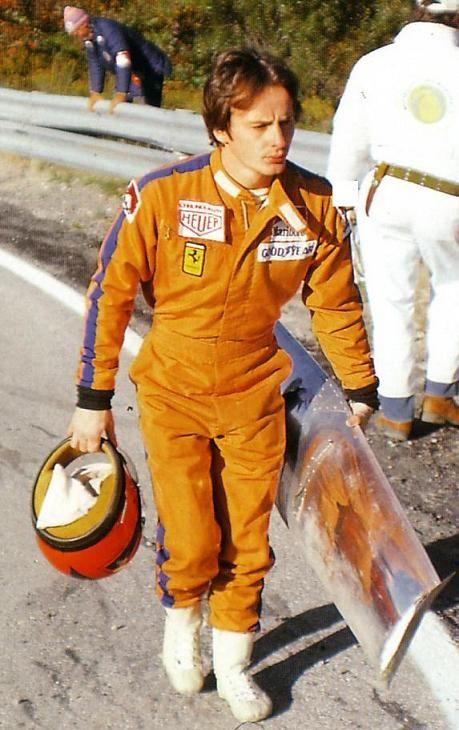
Mosport ’77, Gilles walking back to pits.
About Gilles Villeneuve
"Gilles was a totally uncomplicated non-political guy with no hangups whatsoever. He was totally and completely honest. If we were testing and the car was rubbish, he'd come in and say: 'look, the car's rubbish … I don't mind driving the car, don't get me wrong, I'll drive it all day and I love every minute of it, but I thought that you ought to know the car's rubbish.'” The Old Man (Enzo Ferrari) loved him for this." Harvey Postlethwaite Ferrari Technical Director (1981 - 1987).
"He also never drove anywhere at anything less than an absolutely flat-out pace, be it on the road or the track..." Harvey Postlethwaite.
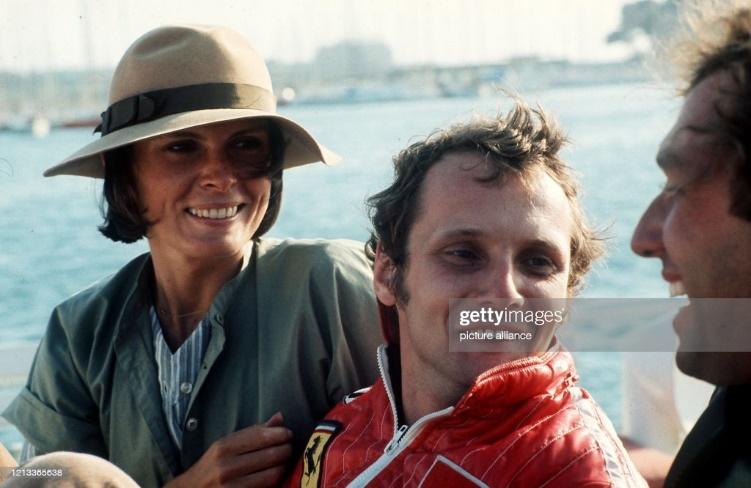
Niki Lauda with his girlfriend Mariella, Baroness von Reininghaus, on the French island of Bendor, a few kilometers from the port town of Bandole, in July 1975. Photo by Dieter Klar / picture alliance via Getty Images.
"I think Gilles was the perfect racing driver … He had the best talent of all of us." Niki Lauda.
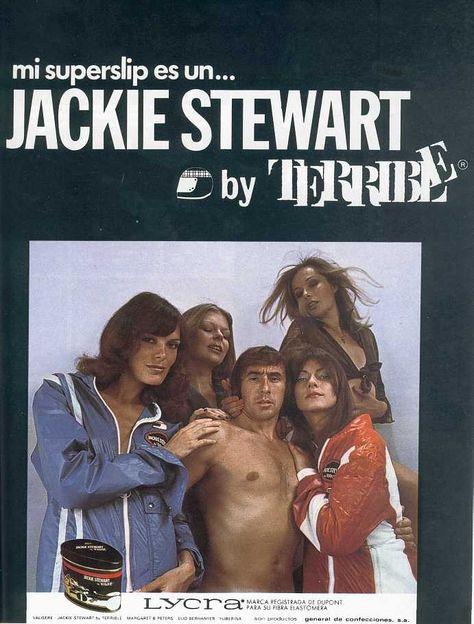
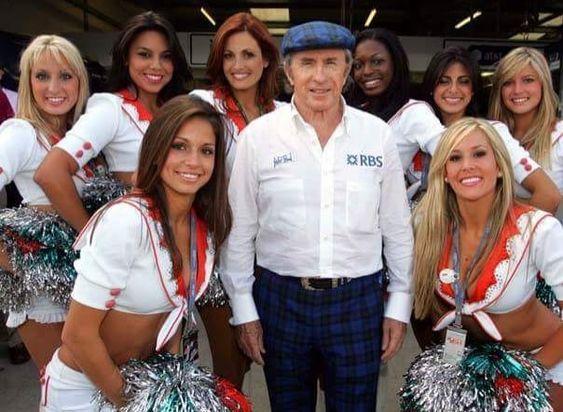
Jackie Stewart.
"His car control was extraordinary, even compared with the many talented drivers I have had the opportunity to drive against over the years. … [He drove a] Grand Prix car to the absolute limit of its ability." Jackie Stewart, triple Formula One World Champion.
“I know no human being can do miracles but Gilles could really surprise us sometimes”. Jacques Laffite Formula One driver, 1982.
"Behind the wheel of a racing car he was fearfully quick, never stopped trying, and could extricate himself from the most precarious situations with deft brilliance." Alan Henry, Motorsport journalist.
"In a situation like that I know I would have been scared stiff. But I am sure that when Gilles felt his Ferrari take off, his last thought was anger, plain and simple, because he knew that he had spoiled that one perfect lap." Eddie Cheever Formula One driver and Indianapolis 500 winner.
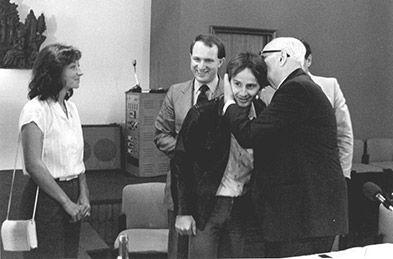
"His death has deprived us of a great champion - one that I loved very much. My past is scarred with grief; parents, brother, son. My life is full of sad memories. I look back and see the faces of my loved ones, and among them I see him." Enzo Ferrari.
"His death signified the passing of a certain approach. He was the last person who had the totally un-inhibited joy of driving a racing car." Alan Henry, motorsport journalist and friend of Villeneuve.
"Quite seriously, I've never felt anything like the same about racing ever since. I nearly packed it up." Nigel Roebuck, motorsport journalist and friend of Villeneuve.
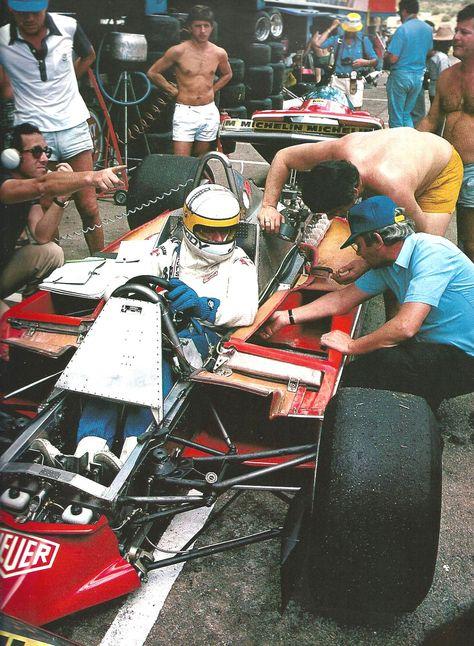
Jody Scheckter, Ferrari, in 1979.
"I was at home in Monaco that Sunday. A friend of mine called from Zolder and said 'Gilles has had a big accident and it doesn't look good at all.'
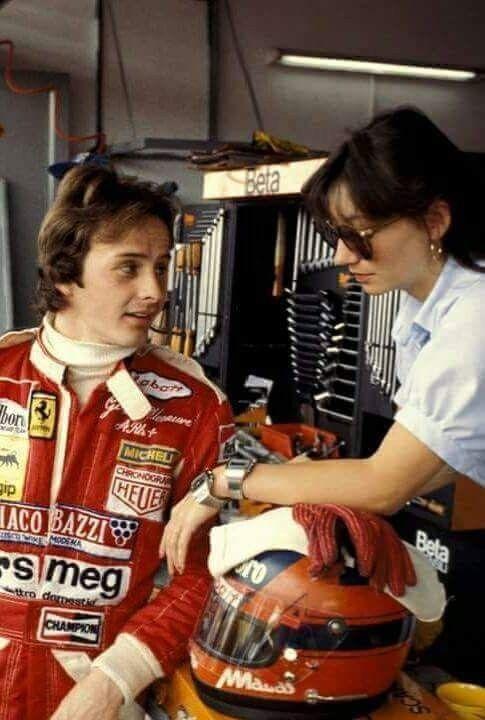
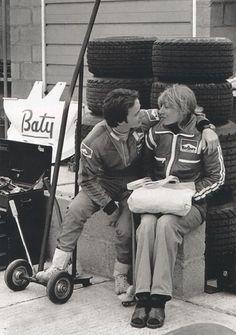
So I phoned Joann, and shot up to her place very quickly. From then on it was chaos and disaster. You don't want to think about it." Jody Scheckter, 1979 Formula One World Champion and Villeneuve's teammate in 1979 and 1980.
"It was terrible when Gilles died. I cried that day and the next one too, even though I had to race... ... and I remember the feeling that we were all starting equal, from now. Villeneuve was gone. We all knew he had talent beyond our reach." René Arnoux, Formula one driver.
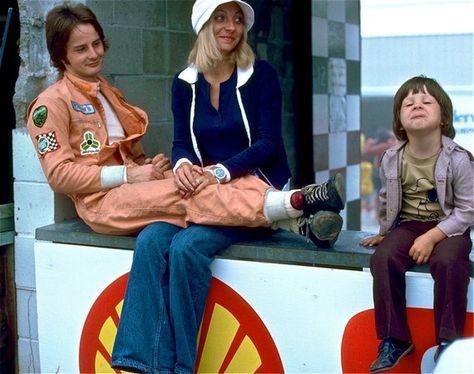
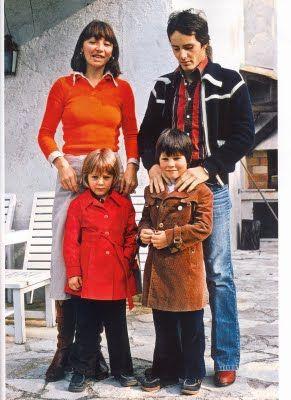
"The kids were just 8 and 10 years old and seemed to be doing much better than I expected. That first night they both went upstairs to bed and later I went up to check on them. They were asleep. When I saw Melanie I started crying. She had a picture of her dad with her. She was holding it in her arms." John Lane, long-time companion of the Villeneuves.
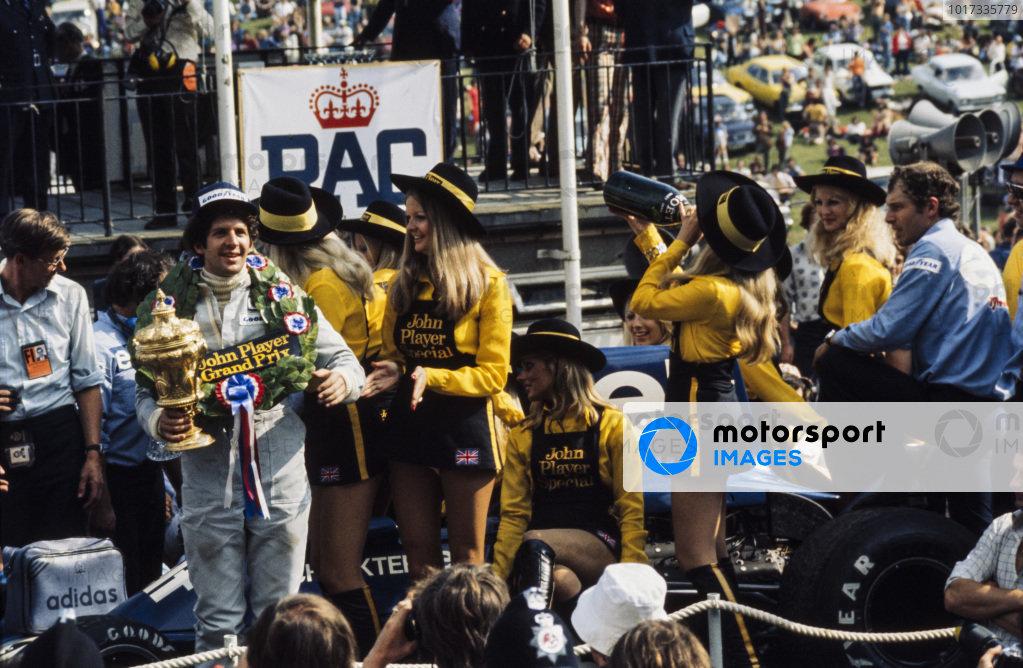
Jody Scheckter at Brands Hatch in 1974.
"[Gilles] was the fastest driver in the history of motor racing. But more important for me is that he was the most genuine person I have ever known." Jody Scheckter.
Video
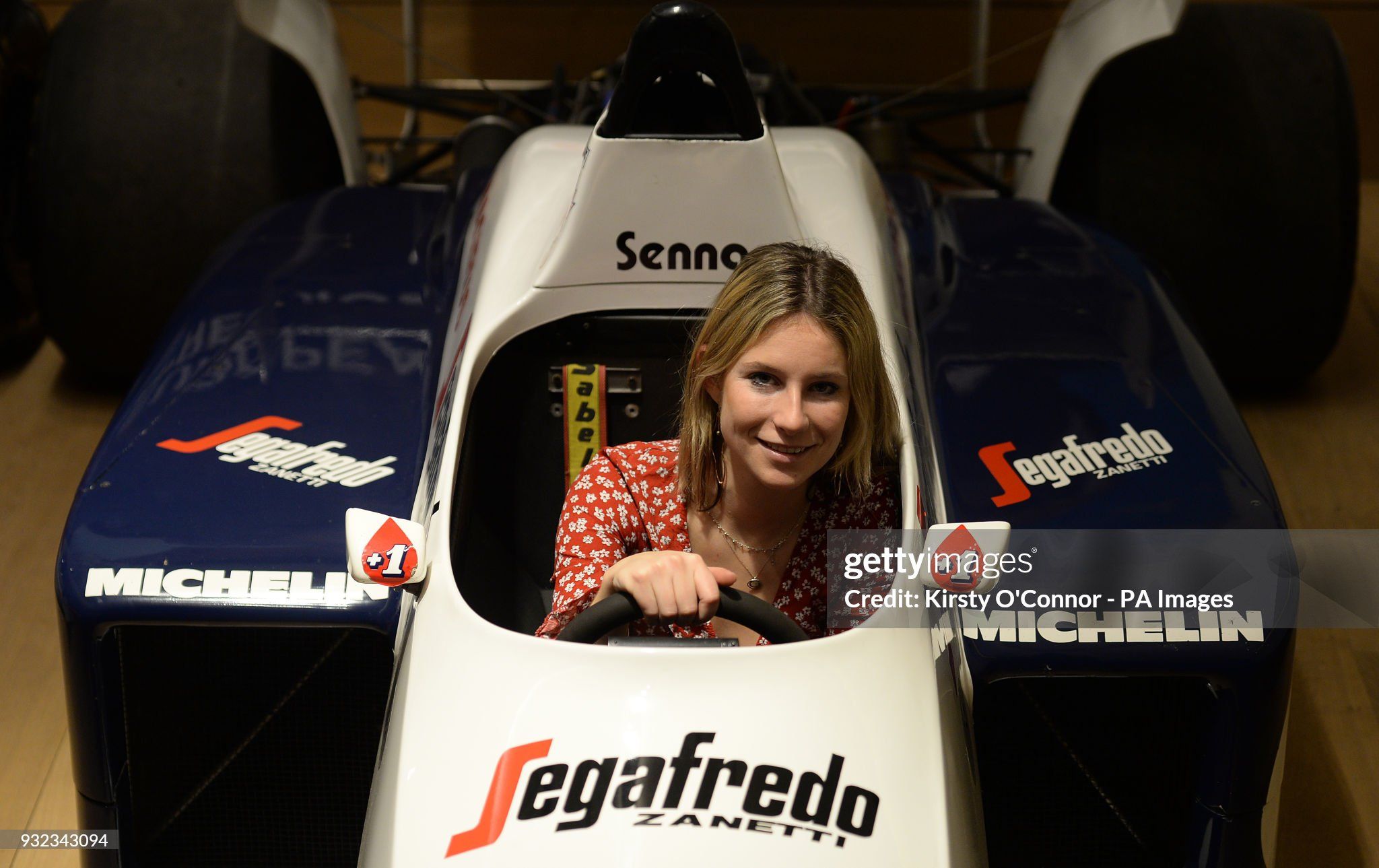

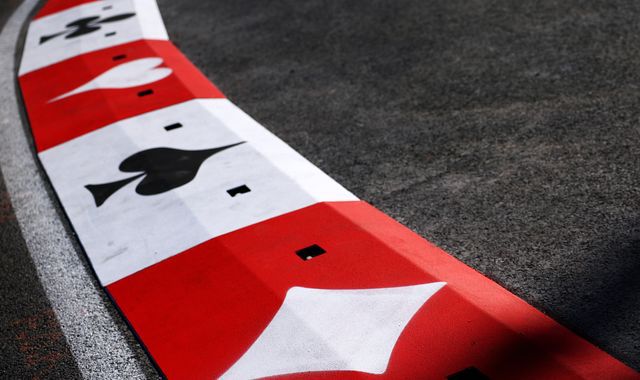
Comments
Authorize to comment